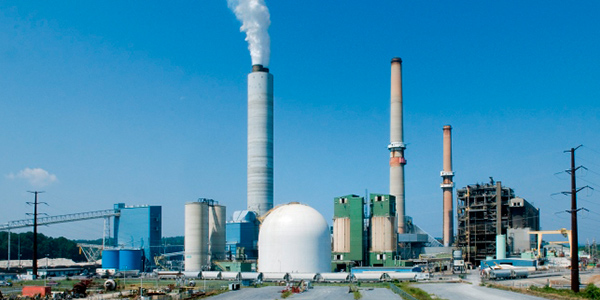By Christen Smith
Talen Energy this week agreed to pay a $1 million fine after toxic waste from one of its Pennsylvania coal plants seeped into groundwater and the nearby Susquehanna River.
The settlement comes as part of a consent decree ordering the company to close and excavate its last remaining unlined coal ash pond at the Brunner Island plant in York Haven, where some 442,000 tons of combustion waste piles up each year.
“We are proud to have been able to reach an amicable settlement that will promote transparency, accountability, and, most importantly, environmental protection,” said Mary Greene, deputy director of the Environmental Integrity Project. “Talen Energy deserves credit for stepping up to the plate and agreeing to measures that should significantly reduce pollution.”
“Talen is committed to complying with all environmental regulations and will continue to focus on the safe, efficient and reliable operation of our plants,” Debra Raggio, the company’s senior vice president of regulatory and external affairs, said in a statement Wednesday.
EIP, in conjunction with the Pennsylvania Department of Environmental Protection, last year filed suit against Talen in federal court on behalf of three local environmental groups — Lower Susquehanna Riverkeeper Association, Waterkeeper Alliance and PennEnvironment — who claimed the company violated the Clean Water Act by improperly disposing of coal ash waste and polluting the Susquehanna, the Chesapeake Bay’s largest tributary. The groups also appealed a state board’s decision to reissue Talen’s National Pollutant Discharge Elimination System (NPDES) permit.
Talen agreed to the settlement on Wednesday, which requires the company to pay the fine, clean up the offending ash pond, monitor other waste sites for pollution seepage and contribute $100,000 to fund other local projects aimed at reducing water pollution.
“This enforcement action is one of historic proportions, since it’s the largest penalty ever assessed at a coal ash pollution site in Pennsylvania history,” said David Masur, executive director of PennEnvironment. “We are glad to see DEP working with citizen groups to reach this important settlement for the good of the commonwealth.”
Brunner Island began operating in 1961 as a coal-fired power plant. For decades, the company disposed of toxic coal ash waste in seven unlined ponds and a landfill spread across 367 acres wedged between two river tributaries known as Black Gut and Conewago creeks. Environmental groups argue the ponds allowed boron, lithium and arsenic — a known carcinogen — to seep into the groundwater, the creeks and — ultimately — the Susquehanna.
Talen discontinued using its last remaining pond in June and will accelerate plans for excavation in accordance with the settlement, disposing of all leftover waste by Dec. 31, 2031. The company must also perform regular testing to ensure the liner and leachate collection system at its landfill site remain functional. Doing so will keep the plant in compliance with its NPDES permit.
Lisa Hallowell, senior attorney for EIP, said the agreement will “reduce the impact of toxic coal ash pollution on ground and surface waters, better control the plant’s wastewater discharges, ensure discharge of heated water is protective of aquatic life, and improve water quality for the Lower Susquehanna River and its tributaries.”
Raggio said the settlement — still awaiting approval from the U.S. District Court for the Middle District of Pennsylvania — is memorialized in the consent decree and demonstrates the company’s willingness to proactively maintain compliance with its permits. Talen also converted much of the plant’s output to natural gas in 2016, but the company expects it will continue burning coal for the next decade.
“In this settlement, Talen is addressing inherited legacy issues at these ash basins as we continue efforts to reduce Brunner Island’s environmental footprint by utilizing natural gas and phasing out coal,” she said.
“We hope more coal plants nationwide will follow this example,” said Larissa Liebmann, an attorney for the Waterkeeper Alliance. “It is imperative to our nation’s waterways and communities that industry not only excavate leaking coal ash basins but take additional measures to protect public health and the environment.”




